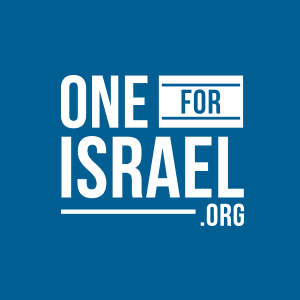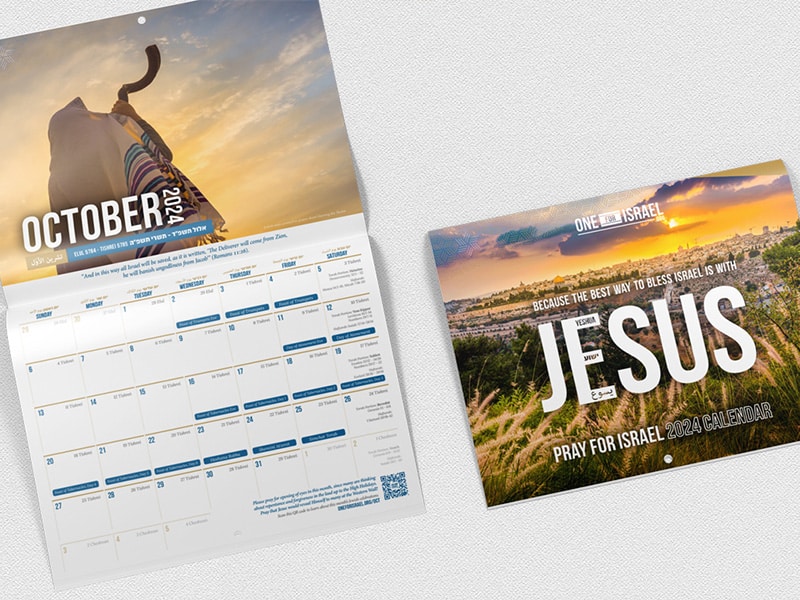“Behold, the days are coming, declares the Lord, when I will make a new covenant with the house of Israel and the house of Judah, not like the covenant that I made with their fathers on the day when I took them by the hand to bring them out of the land of Egypt, my covenant that they broke, though I was their husband, declares the Lord.”
Did you think we were quoting from the New Testament? Not at all. This is a prophecy given hundreds of years earlier, written in the 31st chapter of the book of Jeremiah, in the Bible (Jeremiah 31:31-32). As you can see, God states that since we, the people of Israel, failed to keep the Sinaitic covenant, He will make a new covenant different than the Sinaitic covenant.
This new covenant does not mean that God throws away His people. Truth be told, this new covenant is first and foremost made with Israel. And from there on, to the rest of the world.
First, it’s important to clarify: the word “Torah” means “law”. The laws come with the covenant. Like, for example, a contract that includes conditions. In the same way the Sinaitic covenant came with 613 commandments. Though we broke the contract, the covenant, that God made with us at Mount Sinai, and did not keep the 613 commandments of the covenant, God promised in His rich mercy a new covenant, a new contract.
This new covenant is one among many covenants in the Bible. For example,
- the covenant with Noah,
- the covenant with Abraham,
- the covenant with David,
and so on.
The new covenant is the final one. All the other covenants point towards it.
So, why did we need a new covenant?
Because, though God promised in the Sinaitic covenant that He will never break the covenant, it was the people of Israel that failed. Again … and again … and again. They did not fulfill their part of the covenant. There are dozens of examples where God rebukes the people of Israel for not keeping the covenant. Here are some of them:
“…and they will forsake me and break my covenant that I have made with them. Then my anger will be kindled against them in that day, and I will forsake them.” (Deut. 31:16-17)
“…this people have transgressed my covenant that I commanded their fathers and have not obeyed my voice.” (Judges 2:20)
“And the people of Israel did what was evil in the sight of the Lord. They forgot the Lord their God.” (Judges 3:7)
“He (Elijah) said, ‘I have been very jealous for the Lord, the God of hosts. For the people of Israel have forsaken your covenant, thrown down your altars, and killed your prophets with the sword.'” (1 Kings 19:14)
“For they have transgressed the laws, violated the statutes, broken the everlasting covenant.” (Isaiah 24:5)
“The house of Israel and the house of Judah have broken my covenant that I made with their fathers.” (Jeremiah 11:10)
“…and we have not obeyed the voice of the Lord our God by walking in His laws, which He set before us by his servants the prophets. All Israel has transgressed your law and turned aside, refusing to obey your voice.” (Daniel 9:10-11)
Additional examples can be found throughout the whole Bible.
In the beginning, we had read from Jeremiah 31:31-32. Let's continue from there:
“I will put my law within them, and I will write it on their hearts.” (Jeremiah 31:33)
The main difference between the Sinaitic covenant and the new covenant is that the Sinaitic covenant was a collective, national covenant distanced from the individual. The new covenant is not only for one specific nation but is personal between man and God.
This time we do not receive it in a written form, on stone tablets, like the Sinaitic covenant. Rather, it is written by the Spirit right on the heart of each man and woman who enters the covenant.
“And no longer shall each one teach his neighbor and each his brother, saying, ‘Know the Lord,’ for they shall all know me, from the least of them to the greatest…” (Jeremiah 31:34)
At the time of the Sinaitic covenant we did not have direct access, but we were dependent upon the priests as our mediators. The priests were intermediaries for the people continually bringing sacrifices for the sins of the people.
Now, within the new covenant, everyone has access to God:
Little children and grown ups, women and men, Jews and Gentiles.
Let's continue:
“For I will forgive their iniquity, and I will remember their sin no more.” (Jeremiah 31:34)
Thanks to the one eternal sacrifice carried out by the Messiah we enter into the new covenant through faith in the sacrificial work of the Messiah … similar to the sons of Israel in the desert, who had to look up to the bronze serpent believing that they would be healed from the fatal snake venom.
Also in the new covenant, we need to look up to the Messiah who was crucified. He took on Himself the fatal poison of our sins so that we would have life.
And what is the purpose of the new covenant?
Forgiveness of sin.
From the Sinaitic covenant we learn about God’s holiness and His perfect demands. In the new covenant He reveals His grace and love. The new covenant reflects the immeasurable grace that God demonstrates towards us. While we broke His covenant, He showed Himself to us in the person of the Messiah. He allowed us to treat Him like a lamb on its way to the slaughter, in order to be sacrificed. In His death He paid for our sins and in His resurrection from the dead He gave us victory over death and eternal life.
In the death and the resurrection of the Messiah, a new covenant was established for us. A covenant that solely depends on what the Messiah has done and not on our failed attempts.
However, as we've already mentioned in another video, the new covenant does not make our lives easier or more comfortable. But rather, the Torah of the Messiah makes life a lot more challenging.
By the way, even the Sages acknowledged this. See their words in the Talmud:
“In the future, the Holy One will sit in the Garden of Eden and teach. And all the saints will sit before him… And the Holy One will sit and teach a new Torah, that will be given by the Messiah.” (Yalkut shimoni on Isaiah 26)
To sum it up: We failed and sinned against God, but God, rich in mercy, did something we could not do by taking our sin on Himself and giving us access to His Kingdom.
Or, according to the Apostle Paul who wrote in the New Testament:
“Now the law came in to increase the trespass, but where sin increased, grace abounded all the more. So that, as sin reigned in death, grace also might reign through righteousness leading to eternal life through Jesus Christ our Lord.” (Romans 5:20-21)















